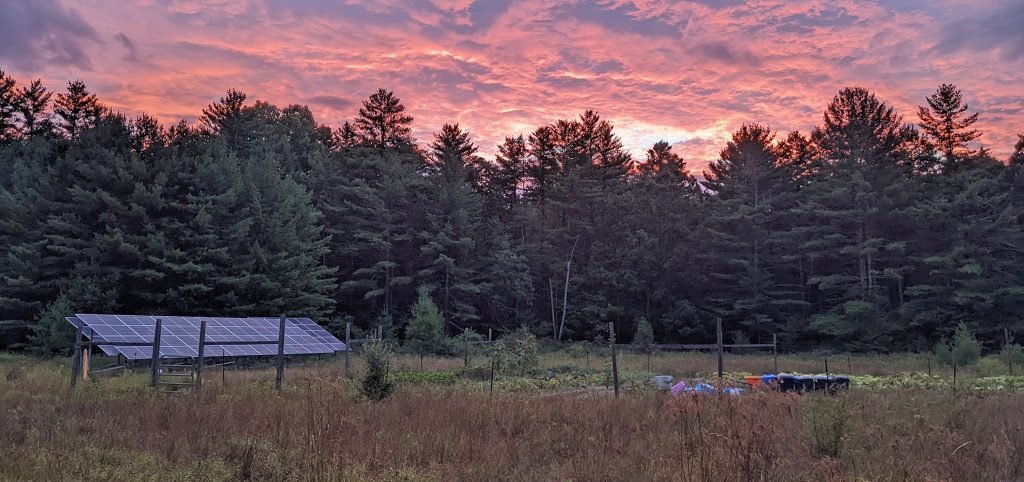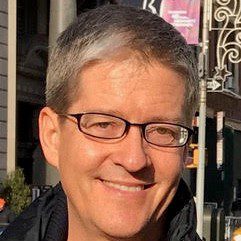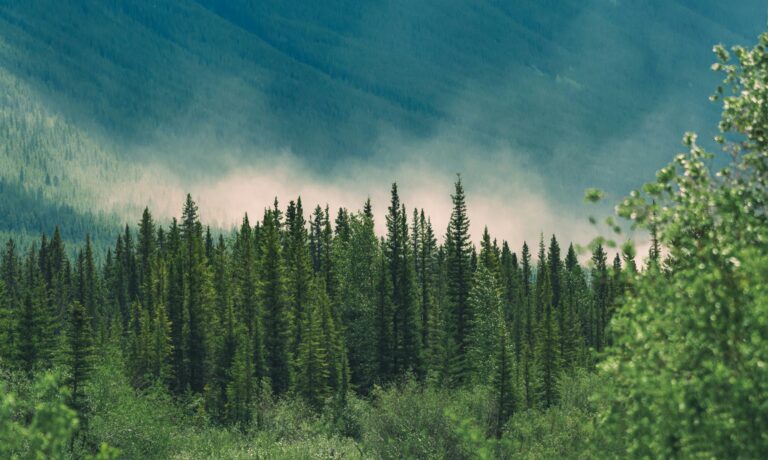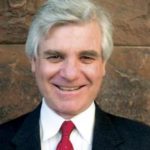In speaking of our relationship with the Earth as Zen practitioners, Shugen Roshi observed, “We trace our heritage back to the early days of Chan Buddhism in China, where work, dharma practice, and intimacy with nature intertwined to enliven the religious life.”
Our teachings are steeped in reverence for the natural world. Our practice includes caring for sentient and insentient beings, those seen and unseen, in our homes, at our formal places of training, and far beyond. This ancient practice is extremely relevant today, given our responsibility to address the unfolding climate emergency that modern humans—especially those in wealthier industrialized nations—have created.
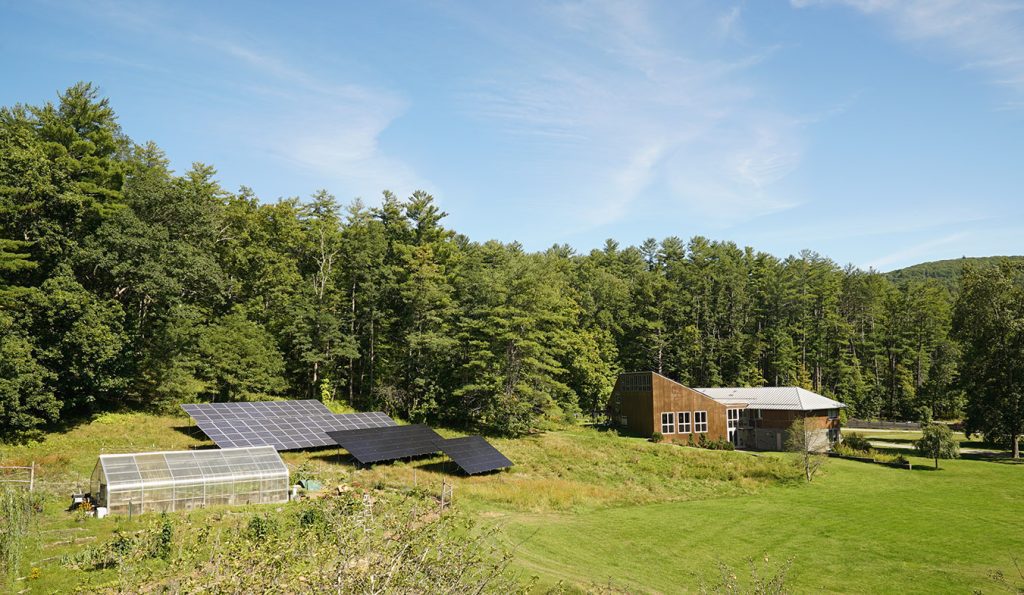
In that spirit and toward The Mountains and Rivers Order’s (MRO) goal of phasing out climate-heating fossil fuel emissions, Zen Mountain Monastery installed electric heat pumps in the Monastery’s main building in February. Our contractors, Archibald Heating and Cooling, and a few Monastery residents began work on February 6th and completed the installation in time for the Bodhidharma Sesshin, which began two weeks later. The heat pumps now provide highly efficient, sustainable electric heat to the zendo. Gone are the ‘click, click, click’ sounds of the previous baseboard heating units. Now, if one listens carefully, one might hear the gentle, intermittent whispering sounds of the air handling units.
Carbon dioxide is a greenhouse gas created by the burning of fossil fuels. However, the Monastery generates much of its electricity from the sun via solar panels. Solar panels at the Monastery are located at the edge of the field between the Sangha House and the garden, on the roof of the Sangha House, and in Han Shan Meadow, where solar panels supply electricity to our A-frame housing for residents. The Monastery also purchases supplementary electricity from renewable sources through a green energy service company (ESCO). As such, heat to the zendo is now produced free of damaging carbon emissions. This is a significant step toward the MRO’s goal of phasing out fossil fuel at the Monastery and Temple by 2030.
Phasing out Fossil Fuel at MRO practice centers by 2030
- The Monastery will continue to expand its arrays of solar panels. All electricity not generated by our solar panels will continue to be purchased from green energy suppliers—at the Monastery and the Temple in New York City.
- Many of our buildings have already been converted and operate entirely on green electricity. At the Monastery, these include the residents’ cabins and A-frames, the bathhouse, and the steel barn. The new Jizo House also runs on green electricity. As with the Monastery’s main building, the office building is also undergoing conversion.
- Last year, hybrid heat pump hot water heaters were installed in the main building. Most of our hot water is now sustainable.
- The MRO hopes to have all buildings operating fully on renewable electricity by 2030. Going forward, we will only purchase electric vehicles and power equipment when replacements are needed. We expect that all of our vehicles will be electric by 2030.
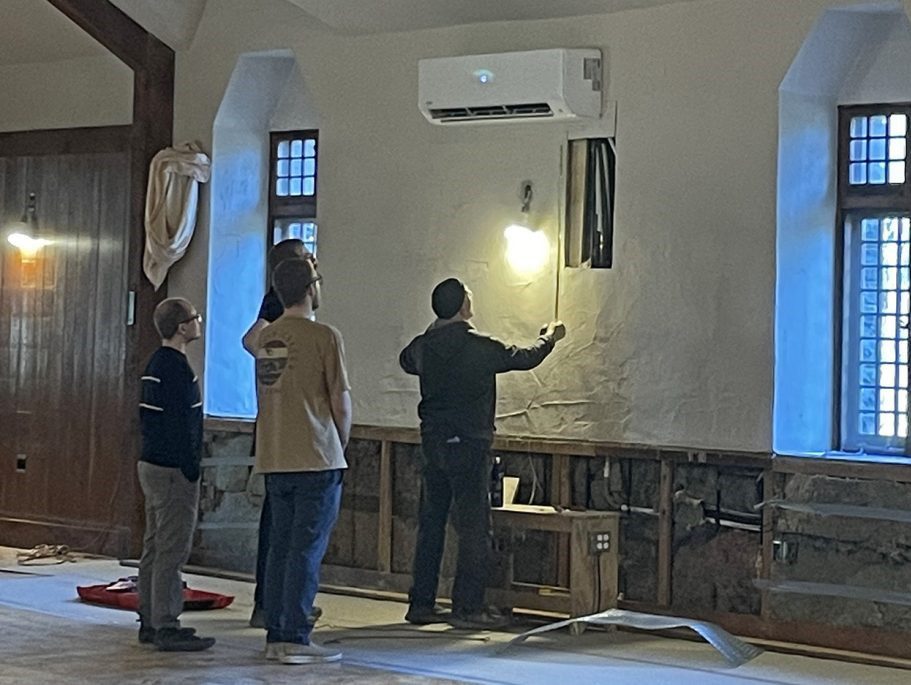
What are Heat Pumps, and Why are they Considered More Sustainable?
According to Wikipedia, “a heat pump is a device that can provide heat to a building by transferring thermal energy from the outdoors using a refrigeration cycle.” When set to heating mode, a refrigerant at outside temperature is compressed, making it hot. The refrigerant is then transferred to an indoor unit to heat up devices that provide warm air or hot water. At the end of the cycle, the refrigerant, now decompressed, is moved to the outdoor unit to draw heat from the air as it undergoes compression again. The process repeats continuously when a heat pump is operating.
Modern heat pumps can extract and compress heat from very cold air, even below zero Fahrenheit. Most heat pumps can double as air conditioners by being cycled in the opposite direction, moving heat from indoors to the outside, thereby cooling a physical space.
Heat pumps run on electricity, are significantly more energy efficient than standard electric heaters, and are much cheaper to operate. When the electricity running a heat pump is derived from renewable sources – for example, generated by solar panels on-site or purchased from a green energy service company – heat pumps, if properly maintained, do not contribute to carbon global heating carbon emissions.
Worldwide, many governments offer rebates and/or tax credits for heat pump installation. The MRO has benefited from significant New York State rebates.
It is essential to understand that the refrigerant used in most heat pumps and other machinery types is itself a potent greenhouse gas if released into the atmosphere. As such, heat pumps and devices such as refrigerators, air conditioners, and dehumidifiers must be well-maintained to avoid leaks. Critically, the refrigerant should be professionally recovered and safely repurposed, not discarded at the end of a device’s life cycle.
This article was originally published on Mountain Record – An Online Journal of The Mountains and Rivers Order of Zen Buddhism. It is reprinted here with permission.

